Tenant views are vital for housing associations to understand needs and improve services for their customers. This is particularly key for organisations, such as registered providers or housing associations, who own and manage substantial estates on behalf of tenants. For example, Home Group supports over 113,000 customers across 55,000 properties.
When Coronavirus caused the first lockdowns in March 2020, many organisations involved in built environment projects were keen to move their physical town hall consultation to digital platforms. At the same time, tenants who already displayed a reluctance, or inability, to attend meetings at a specific time in a particular location were looking for new ways to engage with their estate management teams.
Good tenant engagement is no longer optional. Leading registered providers demonstrate timely and personalised communication with their tenants. Effective tenant engagement services ensure that you can plan based on tenant feedback. They take a proactive approach that nurtures a collaborative culture, preempting and minimising complaints.
Here we briefly comment on a few tips for effective tenant engagement.
Why tenant engagement is key
In the UK, the public enquiry into the Grenfell tower fire caused by combustible cladding led to the publication of the Government whitepaper on social housing. The investigation identified a lack of engagement with tenants on building safety, although they were raised early on. As a result, the UK government requires registered providers to demonstrate a review and improvement of tenant engagement.
The Tenant Involvement and Empowerment Standard is one of four required customer service standards in England for registered providers. Based on this standard, registered providers must ensure that tenants are given a wide range of opportunities to be involved in and influence the management of their estate, including access to "relevant and timely information" about estate changes.
Here we focus on engagement on existing estates with existing tenants. There are a wide range of conversations housing associations might wish to have with their tenants:
- Everyday conversations with updates about the housing estate, receiving individual requests and comments about housing units and facilities.
- Information gathering about proposed major regeneration projects for existing estates.
- Improvement projects to public spaces
Gaining insights into issues within existing estates or perceived issues on changes and upgrades is vital for allowing early intervention and can avoid complaints, the last resort for tenants.
Suggestions for supporting tenant engagement online
Everyday conversations - make it informal
One strategy is to let social media do the work for you: Social media is a part of everyday life for citizens and businesses. One of the beneficial aspects of social media, like Facebook, is the opportunity to establish a neighbourhood group that can be limited to the tenants of a particular estate.
Admins can moderate groups to ensure polite and helpful conversations and prevent advertising or discourteous behaviour by tenants. Ideally, a tenant voice or tenant engagement staff is involved as admin.
The group allows people to ask for advice from the Housing association and from each other to share tips and local information with new tenants.
Conversations still need to be relevant to tenants and can include news, residency updates, and links to polls and surveys. Keep it simple and add some fun or competitions that tenants can get involved with and provide them with an incentive to stay connected and engaged.
Provide clear and concise information about upcoming events, programmes of work on the estate, and opportunities to engage, ideally all in one place on a website.
Reaching tenants online
Facebook, Instagram, Twitter and even TikTok have proven to be excellent vehicles for advertising projects and directing tenants to a specific platform to provide feedback. Surprisingly, younger people are less likely to be on Facebook and more likely to be found on TikTok or Intagramme, so you might like to develop a presence there.
Print media is also an effective way to share information with tenants about proposed projects. These can take the form of letters, postcards or flyers around the housing complex.
Digital newsletters have become a widely used form of sharing relevant information with tenants. If you link a digital newsletter to your tenant database, you can customise the communication even further.
Online engagement platforms for engaging tenants
Our communication is increasingly digital. A letter or non-personalised brochure in the mailbox is not sufficient to engage tenants. A balance between digital and physical helps communications be accessible and efficient and can still include a human element.
Increasingly housing associations hear from tenants who might not wish to attend public meetings or prefer to share feedback anonymously online.
Online engagement platforms and your physical presence or company website can provide a middle ground for informal sharing of ideas combined with access to estate-related information, events, and activities in one place.
Organise feedback and respond online
It is also essential to listen and then report to tenants on how they have been heard and how the new development has been altered to include their feedback on concerns or new ideas.
Facebook groups are great for informal conversations but don't provide a means for leaving personal messages between a tenant and contacts at the housing association for repairs or complaints. Dedicated engagement platforms provide anonymous feedback and direct messages between tenants and housing associations.
This can be done periodically in official tenant magazines or newsletters. A refined tenant engagement process can pick up ideas as they emerge, reference them to ongoing estate improvement activities, and, if needed, provide personalised responses to the individual tenants who made these suggestions.
Visualise key concerns on your estate
For any organisation with existing estates improvement programmes and need for tenant engagement, it's key to enable residents to associate their feedback with relevant aspects that can change. This can be aided by providing interactive presentations of existing estates, including on-site properties and any significant current or future projects.
How digital engagement platforms improve tenant engagement
Facebook groups are easy to establish by tenants and can be a powerful informal messaging board. However, these groups may be more challenging for admins or registered providers to draw on as part of their tenant engagement activities, as it's less easy to steer the conversation on key topics or embed feedback in more formal design development processes.
Digital engagement tools enable teams to deliver on an inclusive and personalised engagement strategy. With tools such as PlaceChangers, the combination of facts about existing built estate, and your tenant information, you can cross-check if the engagement strategy is working.
With an interactive map-based engagement platform, a tenant can quickly see where the new development will take place in the existing complex. The use of video walkthroughs and 3D visualisations can bring the proposed project to life and more accurately show tenants the benefits of the new works. A map-based system allows tenants to pinpoint their comments to exact locations. One example of this is how architects for Byker Community Trust used the PlaceChangers platform to support engagement as part of upgrades to the public realm.
Having a shared feedback environment also allows tenants to view their neighbours' comments and provide feedback on any issues and positive attributes of the proposed project and link those back to in-house tenant engagement teams.
A link to the digital platform can be posted on the community Facebook group, in printed information or via a QR code, making it easy for the maximum number of tenants to participate. Your platform provider can assist with post outs, flyers or social media updates.
Conclusion
For effective tenant engagement, housing associations must define their engagement strategy for everyday and one-off engagement conversations. Effective communications can result in enthusiastic involvement from tenants on estate improvement or regeneration projects.
Leading tenant engagement teams make all estate-related activities easily accessible in a trusted place for a diverse range of tenants to navigate and provide meaningful feedback.
For tenants, digital engagement provides an easy and accessible way to communicate with the housing association or registered provider to give feedback on their estate's day-to-day requirements and specific projects.
As a foundation for a mix of methods, digital engagement tools are an effective way for housing associations to engage a diverse range of tenants in a more accessible manner (anywhere, at any time, on any device). The ability to analyse feedback through demographic or other filters is beneficial to discussions and changes that the project team makes.
Explore the PlaceChangers planning toolkit

PC Engagement - market leading engagement tool
Set up powerful map surveys and polls based on the changes that may come up on your estate and prioritise future planning interventions more easily.
